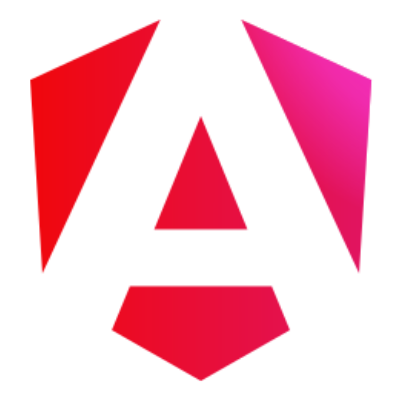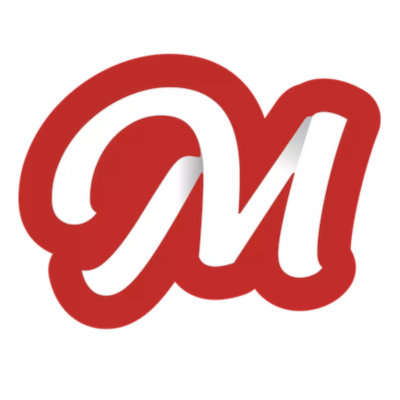NEW! Curricular Projects • Test Your Skills and Get Expert Feedback
We independently test and review every course that we recommend.
Please support us by joining our mailing list, and recommending this guide to others.
Updated: January 5, 2024

Pluralsight
By Various
If you're serious about learning Angular for your job, this path is the best investment of time and money. You'll learn how Angular works in the real world, from basics to advanced topics, with courses by some of the top Angular experts in the world, including John Papa, Deborah Kurata, and Dan Wahlin.
The courses in the Pluralsight path are some of the most popular on their platform, and it’s clear why. Pluralsight courses are highly curated and polished, and their roster of Angular authors is the strongest around.
Pluralsight courses are concise and self-contained, focused on a particular topic within Angular. This is helpful, as an expert can focus the scope of the course to just what they need to cover. Pluralsight also produces courses at a consistently high level, following a similar format, which helps minimize distractions you sometimes find in other courses (like fluctuations in audio).
One of the best features of Pluralsight’s courses are the unifying scenario, where the examples and demonstrations all relate to a fictitious company. This way, you’re learning how Angular works in the real world rather than how to build a toy application.
Additionally, with your Pluralsight subscription, you can measure your skills with an in-depth assessment. You’ll be able to see your level of proficiency and how your assessment score ranks against others who have taken the assessment.
Pluralsight counts many enterprise organizations as customers, so this learning path (and their broader library) includes several courses that cover working with larger code bases and scaling Angular applications. So if you're planning to use Angular professionally, you'll benefit tremendously from their range of courses.

Angular.dev
By The Angular Team
A solid free learning option for those looking to get up to speed quickly with Angular. This interactive tutorial series covers the essentials - enough to prepare you to start building your own Angular apps - but doesn't teach as much real-world application as our other recommendations.
In this course, you’ll learn Angular through a series of interactive tutorials. Each tutorial takes you through one key concept, with a series of in-browser coding assignments. With the in-browser coding environment, there's little setup overhead and you get almost instantaneous feedback on your code.
One of the major benefits of this course is that the Angular team creates and maintains the content, so it's one of the best places to learn the latest Angular features. This will become increasingly important in May 2024 when major new features release.
To get the most out of the course, you may want to consider shifting to developing on your local system as you progress through the course, so that you have experience with setup and troubleshooting.
Our initial research involved spending hours reading hundreds of reviews of various course options, and perusing forums for recommendations and user preferences. From this research, we narrowed down to a list of 12 highly-rated candidate courses.
We graded the candidate courses against the following criteria:
From this thorough research and testing, we're confident this is the single best guide to Angular courses available.

Frontend Masters
By Various
Excellent resource for learning the essentials to start working with Angular in a professional capacity.
Frontend Masters courses combine footage from real-time workshops with code files so you can follow along. This is helpful because the authors often stop to answer questions that you may have while studying.
Frontend Masters authors are top engineers at some of the world’s leading tech companies, so their workshops are full of best practices used to build world-class applications. Often you’ll hear valuable insights like which features they’ve never once seen used, which can be helpful in guiding you towards which topics to practice and which to not worry so much about.

Fireship.io
By Jeff Delaney
Not as in-depth as other courses and paths, but a good option if you're an experienced developer looking to quickly learn the basics by building a practical application.
In this course, you’ll learn Angular by building and deploying a real-world application. This means you’re not only learning how to build an app with Angular, but how to use Firebase to deploy the application.
The course starts from Angular basics and eventually culminates with the deployment of a server-rendered progressive web app on Google Cloud Run.
The videos are well-produced and the concept explanations are strong throughout. If you're not familiar with his style, you can check out some of his screencasts on YouTube for a sample. But if you're a fan, you'll really enjoy this course.
To get the most out of the course, you'll want to code along and where possible, try to extend the application further than the core functionality.

Udemy
By Maximilian Schwarzmuller - Academind
A decent inexpensive option to learn Angular by seeing an application built step by step.
This course starts with the absolute basics of Angular and works up to some advanced topics like authentication and optimization, with a brief introduction to the essential concepts. Most of the explanations are done in the context of a scenario project.
This course contains solid explanations of the essentials of Angular, with lots of real world examples for how the instructor actually uses Angular to build applications.
We also really liked the assignments built in the course, which are designed to be completed on your own, with the author's solution videos as a reference / checkup on your work.
Angular is a popular JavaScript framework for building web applications. Angular is used to create dynamic, single-page applications (SPAs) where the content is updated without requiring a full page reload. Angular uses routing to map the URL in the web browser to a specific state in the web application.
Led by Google, Angular is based on TypeScript, a superset of JavaScript.
Angular follows the Model-View-Controller (MVC) architectural pattern: - The Model represents the application's data and business logic - The View is the user interface component that displays the data to the user. It presents the information from the Model in a visually understandable format. - The controller contains the logic for the web application, handles user input and processes other user actions, and acts as an intermediary between the Model and the View.
Angular offers features like two-way data binding to link views and model data, so that updates to one causes updates to another. Other features include dependency injection and a robust set of tools and libraries to enhance development productivity.
Components: Understand how to create and manage components, which are the building blocks of Angular applications. Learn about component lifecycle hooks, data binding, and how to handle events.
Templates: Familiarize yourself with Angular's template syntax, which allows you to define the structure and appearance of your application's user interface. Learn about data interpolation, property binding, and how to create reusable templates.
Directives: Learn about directives, such as structural directives like ngIf and ngFor, which allow you to manipulate the DOM based on conditions or iterate over collections. Also, explore attribute directives like ngStyle and ngClass to dynamically modify element styles and classes.
Services and Dependency Injection: Understand the concept of services in Angular, which are used for sharing data and functionality across components. Learn how to create and use services, and grasp the concept of dependency injection for managing dependencies between components and services.
Routing: Get familiar with Angular's routing system, which enables navigation between different views or pages within your application. Learn how to define routes, handle route parameters, and implement nested routing.
Forms: Explore Angular's powerful forms module for handling user input and validation. Learn about template-driven forms and reactive forms, and understand how to perform form validation and handle form submissions.
Once you're familiar with the foundations, you can move on to learning some more advanced features in Angular.
RxJS: This reactive programming library is increasingly used in Angular for handling asynchronous data streams and complex interactions. Learning RxJS can make your code more efficient and responsive.
NgRx State Management: This popular library provides a structured approach to managing application state in Angular. It helps maintain consistency and simplifies handling complex data flows across your app.
Signals: Signals offer granular tracking of how and where your state is used in the application, leading to more efficient change detection and better app performance. They enable a reactive approach to data management, simplifying communication between components and promoting cleaner, more responsive code.
HTML and CSS: While Angular handles data and application logic, you'll need a solid understanding of HTML for structuring your interface and CSS for styling components. Familiarity with preprocessors like SASS or LESS can be helpful but isn't mandatory for beginners.
JavaScript: Having a strong understanding of JavaScript is essential as Angular is built using JavaScript. Familiarize yourself with JavaScript fundamentals, including variables, functions, arrays, objects, and ES6 features.
TypeScript: This is the primary language used for Angular development. It's a superset of JavaScript that adds static typing and other features for better code organization and reliability. Mastering TypeScript is crucial for understanding and writing robust Angular applications.
Single-Page Applications (SPAs): Angular is often used to develop single-page applications, where content is dynamically loaded without page reloads. Understanding the concepts and techniques used in building SPAs will be beneficial.
Web Development Basics: Familiarize yourself with concepts like HTTP, RESTful APIs, client-server communication, and asynchronous programming. Knowledge of these fundamentals will help you consume APIs and handle data in your Angular applications.
Package Managers: Familiarize yourself with package managers like npm (Node Package Manager) or Yarn. These tools are commonly used in Angular projects for managing dependencies and installing packages.
Help us out by joining our email list to get notified when we release new guides, and recommending this guide to others.
Thanks for reading!